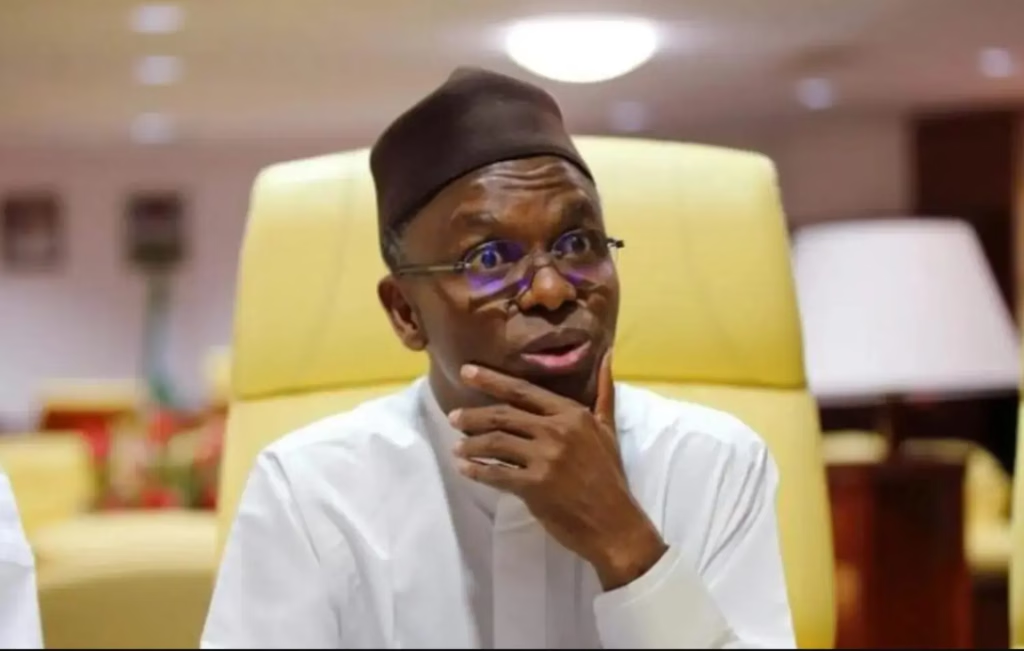A recent statement from the Citizens Collective for Good Governance, CCGG, has shed light on the increasingly tense relationship between former Kaduna State governor, Nasir El-Rufai, and President Bola Ahmed Tinubu. According to the CCGG, El-Rufai’s recent criticisms of President Tinubu stem from bitterness and frustration over being excluded from the federal cabinet.
The group’s president, Gambo Abdulkadri, issued a strongly worded statement accusing El-Rufai of launching a “desperate and vindictive campaign” against President Tinubu. This comes after El-Rufai claimed that President Tinubu would need a “miracle” to win re-election in 2027 and cited polling figures suggesting a 91 percent disapproval rating for the president. The CCGG has dismissed these claims as “fabricated and delusional.”
Abdulkadri suggested that El-Rufai’s outburst is a result of his ego being bruised after President Tinubu declined to offer him a ministerial position. “The public outburst by Mallam Nasir El-Rufai is nothing but the cry of a political actor whose ego was bruised when President Tinubu, in his wisdom, declined to reward him with a ministerial position,” Abdulkadri said. He further stated that El-Rufai’s sudden antagonism towards President Tinubu confirms that his loyalty was never to the country or good governance, but to his own ambition.
In contrast, the CCGG praised President Tinubu’s leadership, citing reforms in the oil and gas sector, anti-corruption efforts, and the pursuit of food security and job creation as examples of “clear-headed governance.” The group highlighted the president’s bold decisions to reset Nigeria’s economy, including ending fuel subsidy fraud and restructuring the fiscal regime. They also pointed to initiatives such as the Renewed Hope agricultural mechanisation programme, student loan scheme, foreign investment drive, and infrastructure renewal across the country as evidence of a leader working for the future, not just popularity.
The CCGG dismissed El-Rufai’s attempt to paint the Tinubu administration as the “worst in history” as dishonest and reckless, given his own track record of leaving behind debt, division, and insecurity in Kaduna State. Abdulkadri warned that El-Rufai’s claimed disapproval ratings are a “phantom poll conducted in the basement of his resentment” and that numerous independent support groups continue to endorse President Tinubu’s leadership.
Despite the challenges, the CCGG noted that millions of Nigerians, including market women, youth groups, professionals, and opposition figures, continue to express confidence in President Tinubu’s leadership. The group urged Nigerians to reject El-Rufai’s “politics of self-interest and sabotage” and to focus on holding leaders accountable based on tangible delivery, not desperation. “El-Rufai should be reminded that governance is not an entitlement scheme,” the statement said. “If the president chose to exclude him from the federal cabinet, it was within his constitutional right and strategic discretion.”
The CCGG called on political leaders to rise above personal grievances and contribute to nation-building, warning that inflammatory rhetoric could derail critical reforms. In a message to the Nigerian people, the group urged them to “ignore voices of distraction and stand firmly behind a government that is working to secure our future.” As the country navigates its challenges, the Citizens Collective for Good Governance remains committed to promoting accountable leadership and constructive dialogue.
